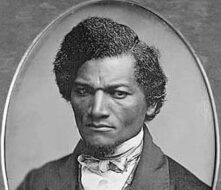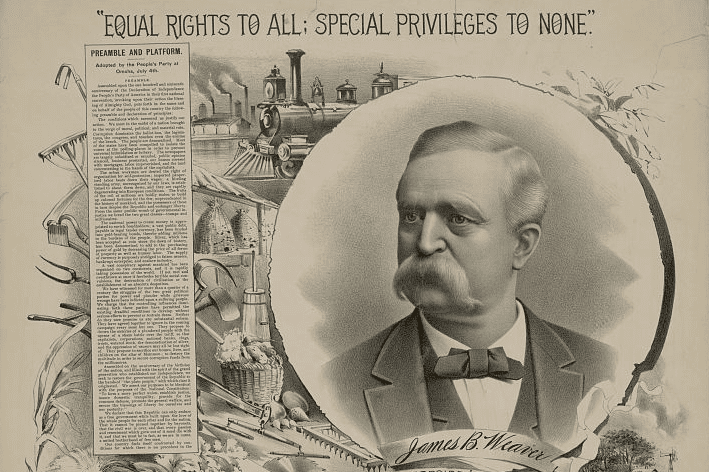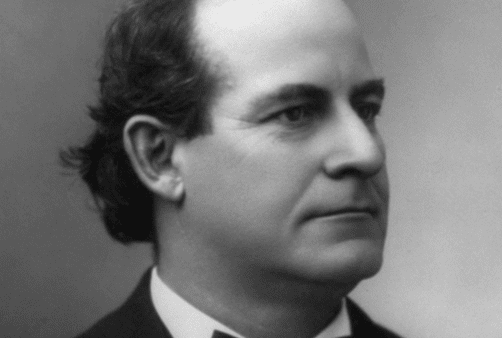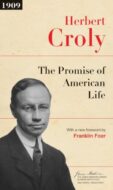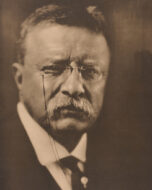
Introduction
Alexander Crummell (1819–1898), born in New York City, was the son of a free African American mother and a slave father. He attended schools provided for free African Americans and began to work in the abolition movement. He later became an Episcopal priest. In 1847, he traveled to England to raise money for his church through lecturing. With the support of British abolitionists, he attended Cambridge University, becoming the first person of African descent to graduate from the University. While in England, Crummell became a pan-Africanist, holding that progress for Africans—both those in Africa and those in the African diaspora—would occur only if they all worked together. After getting his degree, Crummell moved to Liberia, where he worked for the next 20 years as a missionary, teacher, and writer. In 1873, he returned to the United States, serving as rector of St. Luke’s Episcopal Church in Washington, DC until his retirement in 1894.
In this excerpt from The Race Problem in America, Crummell argues that race is an irreducible part of human life. On that premise and from the depth of his Christian faith, he then explains what he believes to be the prospects for African Americans in the United States.
Source: Alexander Crummell, The Race Problem in America (Washington, DC: William R. Morrison, 1889), available at https://archive.org/details/26219475.4758.emory.edu.
. . . Races, like families, are the organisms and the ordinance of God; and race feeling, like the family feeling, is of divine origin. The extinction of race feeling is just as possible as the extinction of family feeling. Indeed, a race is a family. The principle of continuity is as masterful in races as it is in families—as it is in nations.
History is filled with the attempts of kings and mighty generals and great statesmen to extinguish this instinct. But their failures are as numerous as their futile attempts; for this sentiment, alike subtle and spontaneous, has both pervaded and stimulated society in every quarter. Indeed, as Lord Beaconsfield says, “race is the key to history.”[1] When once the race-type gets fixed as a new variety, then it acts precisely as the family life; for, 1st, it propagates itself by that divine instinct of reproduction, vital in all living creatures, and next, 2nd, it has a growth as a “seed after its own kind and in itself,”[2] whereby the race-type becomes a perpetuity, with its own distinctive form, constitution, features, and structure. Heredity is just as true a fact in races as in families, as it is in individuals.
Nay, we see, not seldom, a special persistency in the race life. We see families and tribes and clans swept out of existence, while race “goes on forever.” Yea, even nations suffer the same fate. Take, for instance, the unification of States now constantly occurring. One small nation after another is swallowed up by another to magnify its strength and importance, and thus the great empires of the world become colossal powers. But it is observable that the process of unification leaves untouched the vitality and the persistency of race. You have only to turn to Great Britain and to Austria to verify this statement. In both nations we see the intensity of race cohesion, and at the same time the process of unification. Indeed, on all sides, in Europe, we see the consolidation of States; and at the same time the integration of race: Nature and Providence thus developing that principle of unity which binds the universe, and yet at the same time manifesting that conserving power which tends everywhere to fixity of type . . .
Hence, when a race once seats itself permanently in a land it is almost as impossible to get rid of it as it is to extirpate a plant that is indigenous to its soil. You can drive out a family from a community. You can rid yourself of a clan or a single tribe by expulsion. You can swallow up by amalgamation a simple emigrant people.
But when a RACE, i.e., a compact, homogeneous population of one blood, ancestry, and lineage—numbering, perchance, some eight or ten millions—once enters a land and settles therein as its home and heritage, then occurs an event as fixed and abiding as the rooting of the Pyrenees in Spain or the Alps in Italy.
The race-problem, it will thus be seen, cannot be settled by extinction of race. No amalgamating process can eliminate it. It is not a carnal question—a problem of breeds, or blood, or lineage.
And even if it were, amalgamation would be an impossibility. How can anyone persuade seven or eight millions of people to forget the ties of race? No one could force them into the arms of another race. And even then it would take generations upon generations to make the American people homogeneous in blood and essential qualities. Thus take one single case: There are thirty millions of Negroes on the American continent (eight or more millions in the United States of America), and constantly increasing at an immense ratio. Nothing but the sheerest, haziest imagination can anticipate the future dissolution of this race and its final loss; and so, too, of the other races of men in America.
Indeed, the race-problem is a moral one. It is a question entirely of ideas. Its solution will come especially from the domain of principles. Like all the other great battles of humanity, it is to be fought out with the weapons of truth. The race-problem is a question of organic life, and it must be dealt with as an ethical matter by the laws of the Christian system. “As diseases of the mind are invisible, so must their remedies be.”
And this brings me to the one vast question that still lingers, i.e., the question of AMITY. Race-life is a permanent element in our system. Can it be maintained in peace? Can these races give the world the show of brotherhood and fraternity? Is there a moral remedy in this problem?. . .
What are the probabilities of amity in a land where exists such wide divergence of race as the Saxon on the one hand and the Negro on the other?
First of all, let me say that the social idea is to be entirely excluded from consideration. It is absolutely a personal matter, regulated by taste, condition, or either by racial or family affinities, and there it must remain undisturbed forever. The Jews in this land are sufficient for themselves. So are the Germans, the Italians, the Irish, and so are the Negroes. Civil and political freedom trench in no way upon the domestic state or social relations.
Besides, there is something ignoble in any man, any class, any race of men whining and crying because they cannot move in spheres where they are not wanted.
But, beyond the social range there should be no compromise, and this country should be agitated and even convulsed till the battle of liberty is won, and every man in the land is guaranteed fully every civil and political right and prerogative.
The question of equality pertains entirely to the two domains of civil and political life and prerogative.
Now, I wish to show that the probabilities tend toward the complete and entire civil and political equality of all the peoples of this land.
1st. Observe that this is the age of civil freedom. It has not as yet gained its fullest triumphs, neither yet has Christianity.
But it is to be observed in the history of man that, in due time, certain principles get their set in human society, and there is no such thing as successfully resisting them. Their rise is not a matter of chance or haphazard. It is God’s hand in history. It is the providence of the Almighty, and no earthly power can stay it.
Such, pre-eminently, was the entrance of Christianity in the center of the world’s civilization, and the planting of the idea of human brotherhood amid the ideas in the laws and legislation of great nations. That was the seed from which have sprung all the great revolutions in thought and governmental policies during the Christian era. Its work has been slow, but it has been certain and unfailing. I cannot pause to narrate all its early victories. We will take a limited period. We will begin at the dawn of modern civilization, and note the grand achievements of the idea of Christian brotherhood.
It struck at the doctrine of the Divine Right of Kings, and mortally wounded it. It demanded the extinction of Feudalism, and it got it. It demanded the abolition of the Slave Trade, and it got it.
It demanded the abolition of Russian Serfage, and it got it.[3] It demanded the education of the masses, and it got it. In the early part of the eighteenth century this principle of brotherhood sprouted forth into a grander and more consummate growth, and generated the spirit of democracy.
When I speak of the spirit of democracy I have no reference to that spurious, blustering, self-sufficient spirit which derides God and authority on the one hand and crushes the weak and helpless on the other. The democratic spirit I am speaking of is that which upholds the doctrine of human rights; which demands honor to all men; which recognizes manhood in all conditions; which uses the State as the means and agency for the unlimited progress of humanity. This principle has its root in the Scriptures of God, and it has come forth into political society to stay! In the hands of man it has indeed suffered harm. It has been both distorted and exaggerated, and without doubt it needs to be chastised, regulated, and sanctified. But the democratic principle in its essence is of God, and in its normal state it is the consummate flower of Christianity, and is irresistible because it is the mighty breath of God.
It is democracy which has demanded the people’s participation in government and the extension of suffrage, and it got it. It has demanded a higher wage for labor, and it has got it, and will get more. It demanded the abolition of Negro slavery, and it has got it. Its present demand is the equality of man in the State, irrespective of race, condition, or lineage. The answer to this demand is the solution of the race-problem.
In this land the crucial test in the race-problem is the civil and political rights of the black man. The only question now remaining among us for the full triumph of Christian democracy is the equality of the Negro.
Nay, I take back my own words. It is NOT the case of the Negro in this land. It is the nation which is on trial. The Negro is only the touch-stone. By this black man she stands or falls.
If the black man cannot be free in this land, if he cannot tread with firmness every pathway to preferment and superiority, neither can the white man. . . .
If this nation is not truly democratic then she must die ! Nothing is more destructive to a nation than an organic falsehood! This nation cannot live—this nation does not deserve to live—on the basis of a lie!
Her fundamental idea is democracy; and if this nation will not submit herself to the domination of this idea—if she refuses to live in the spirit of this creed—then she is already doomed, and she will certainly be damned.
But neither calamity, I ween,[4] is her destiny.
The democratic spirit is of itself a prophecy of its own fulfillment. Its disasters are trivialities; its repulses only temporary. In this nation the Negro has been the test for over 200 years. But see how far the Negro has traveled in this time.
In less than the lifetime of such a man as the great George Bancroft,[5] observe the transformation in the status of the Negro in this land. When he was a child the Negro was a marketable commodity, a beast of the field, a chattel in the shambles, outside of the pale of the law, and ignorant as a pagan.
Nay, when I was a boy of 13, I heard the utterance fresh from the lips of the great J.C. Calhoun, to wit, that if he could find a Negro who knew the Greek syntax he would then believe that the Negro was a human being and should be treated as a man.[6]
If he were living to-day he would come across scores of Negroes, not only versed in the Greek syntax, but doctors, lawyers, college students, clergymen, some learned professors, and one the author of a new Greek Grammar.
But just here the caste spirit interferes in this race-problem and declares: “You Negroes may get learning; you may get property; have churches and religion; but this is your limit! This is a white man’s Government! No matter how many millions you may number, we Anglo-Saxons are to rule!” This is the edict constantly hissed in the Negro’s ear, in one vast section of the land. . . .
We have a blatant provincialism in our own country, whose only solution of the race-problem is the eternal subjection of the Negro and the endless domination of a lawless and self-created aristocracy.
Such men forget that the democratic spirit rejects the factious barriers of caste and stimulates the lowest of the kind to the very noblest ambitions of life. They forget that nations are no longer governed by races, but by ideas. They forget that the triumphant spirit of democracy has bred an individualism which brooks not the restraints of classes and aristocracies. . . .
They forget that the Church of God is in the world; that her mission is, by the Holy Ghost, “to take the weak things of the world to confound the mighty,” “to put down the mighty from their seats, and to exalt them of low degree,” that now, as in all the ages, she will, by the Gospel, break up tyrannies and useless dynasties, and lift up the masses to nobleness of life, and exalt the humblest of men to excellence and superiority.
Above all things, they forget that “the King invisible, immortal, eternal” is upon the throne of the universe; that thither caste, and bigotry, and race-hate can [n]ever reach; that He is everlastingly committed to the interests of the oppressed; that He is constantly sending forth succors and assistance for the rescue of the wronged and injured; that He brings all the forces of the universe to grind to powder all the enormities of earth, and to rectify all the ills of humanity, and so hasten on the day of universal brotherhood.
By the presence and the power of that Divine Being all the alienations and disserverances of men shall be healed; all the race-problems of this land easily be solved, and love and peace prevail among men.
- 1. Benjamin Disraeli, Lord Beaconsfield (1804–1881), was a British politician, twice Prime Minister. One of the characters in Disraeili’s novel Endymion makes this remark.
- 2. Genesis 1:11.
- 3. Alexander II abolished serfdom in Russia in 1861.
- 4. Think or suppose.
- 5. George Bancroft (1800–1891) was an American historian.
- 6. See Documents Speech on Abolition Petitions and Speech on Oregon Bill.
The Shell Manifesto
January 23, 1890
Conversation-based seminars for collegial PD, one-day and multi-day seminars, graduate credit seminars (MA degree), online and in-person.


















